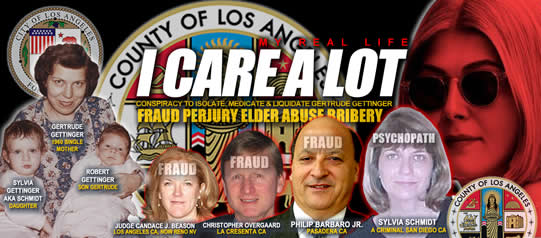People need to realize the MOVIE IS based on fact and true events READ ON HERE
A Cambridge lawyer is suing Netflix, the producers of its “Dirty Money” series, the Boston Broadside and an Essex County attorney for allegedly ruining his life by portraying him as an evil money grubber out to defraud an elderly Needham man who owned five derelict properties in Needham that the town had been trying to get cleaned up for 20 years.
Nicholas Louisa filed his suit in Middlesex Superior Court last month but Lonnie Brennan, publisher of the Peabody-based Boston Broadside, which puts a right-wing spin on news on both a Web site and in a monthly newspaper, this week sought to have the case moved to federal court in Boston because of the First Amendment issues.
At issue are articles the Broadside posted in 2019, and an episode this past spring of “Dirty Money,” that focused on the treatment of a lifelong Needham resident and property owner who now lives in a Dedham nursing home.
The articles and show portrayed the man as an elderly, but still lucid, man taken advantage of by a corrupt Massachusetts guardianship system out to suck money out of his holdings, as exemplified by Louisa and various lawyers appointed by Probate Court judge to represent his interests in proceedings during which one and then all of his properties were sold, initially to pay for cleaning up the properties, eventually to pay for his nursing-home expenses.
One of sources for the articles and show was Lisa Belanger, an Essex County attorney who provided them with documents from the man’s court files, even though a judge had impounded them, after she tried to intercede in his case. Belanger has been writing about her own fight against the guardianship system for the Boston Broadside since 2017
In his suit, however, Louisa paints a different picture, of a confused elderly man with memory problems who had become a hoarder and who was increasingly unable to take care of his own affairs – at least one of the houses he owned in Needham were in such disrepair the town condemned it and it was torn down. Louisa writes that things came to a head in 2018 when a neighbor reported seeing what appeared to be frostbite on the man’s face and authorities conducted a well being check and found the duplex he was living in filled with hundreds of bottles of urine and a dead cat in the freezer, along with the man, suffering from frostbite and hypothermia. There was no furniture in the house, just two couch cushions, and large stacks of unopened mail, including Social Security checks and bills.
Louisa writes the $3.1 million from the sale of the man’s remaining properties went into a fiduciary fund for him, overseen by another lawyer, that pays his nursing-home bills and pays him a monthly stipend – out of which he can request additional funds.
In his suit, Louisa says that he’s a private citizen, so only has to prove the articles and episode were wrong to successfully claim libel, but then continues that the Broadside and Netflix episode were, in fact, malicious in intent, part of a conspiracy orchestrated by Belanger and have caused “irreparable damage” to his “once sterling reputation” – as well as subjected him to a barrage of threats, harassment and even stalking. He charges he now has to let all incoming calls go to voice mail because he gets so many threatening calls and that somebody has looked up his Facebook contacts and sent them messages charging him with stealing money from the man.
He cites several examples of alleged libelous mistakes, including the allegation that he and another attorney forced the man into the Dedham nursing home to get at his money:
It was the Probate Court – not any attorneys – that looked at [the man]’s medical condition, the squalor in which he had been living, his inability to handle his own finances or take care of his own health, and found that he needed protected status for his own safety and wellbeing.
The episode also claimed that he had been ripped from his childhood home and just wanted to return to it, but Louisa says he had not lived there for at least five years – and had sold it before the rest of his holdings and that, in any case, he could not move back because the town had condemned it as uninhabitable.
All of it has combined to give him anxiety and insomnia, he writes, adding he often finds himself unable to eat, leading to rapid weight loss.
In his request to have the case moved to federal court, Brennan argues that Louisa is, in fact, a public figure, because he willingly spokes to the Needham Times in 2018 about the man’s properties, which had been causing neighborhood issues for some two decades. If upheld by a judge, that would require Louisa to meet a higher burden of proof to prove libel – that the statements about him were not just wrong but malicious and printed in disregard of their veracity.
Lawyer sues Netflix, area publisher and another lawyer for libel over coverage of his role in a Needham guardianship case | Universal Hub




